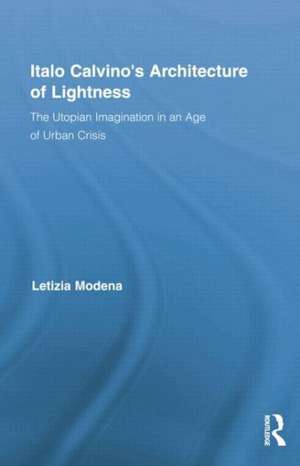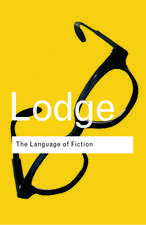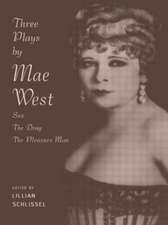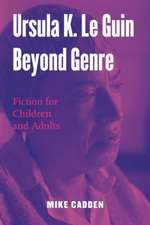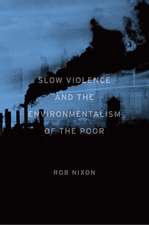Italo Calvino's Architecture of Lightness: The Utopian Imagination in An Age of Urban Crisis: Routledge Studies in Twentieth-Century Literature
Autor Letizia Modenaen Limba Engleză Paperback – 11 sep 2014
| Toate formatele și edițiile | Preț | Express |
|---|---|---|
| Paperback (1) | 446.37 lei 6-8 săpt. | |
| Taylor & Francis – 11 sep 2014 | 446.37 lei 6-8 săpt. | |
| Hardback (1) | 1114.30 lei 6-8 săpt. | |
| Taylor & Francis – 25 apr 2011 | 1114.30 lei 6-8 săpt. |
Din seria Routledge Studies in Twentieth-Century Literature
-
 Preț: 311.41 lei
Preț: 311.41 lei -
 Preț: 310.96 lei
Preț: 310.96 lei -
 Preț: 302.95 lei
Preț: 302.95 lei -
 Preț: 310.60 lei
Preț: 310.60 lei -
 Preț: 170.28 lei
Preț: 170.28 lei -
 Preț: 310.70 lei
Preț: 310.70 lei - 18%
 Preț: 706.91 lei
Preț: 706.91 lei -
 Preț: 482.78 lei
Preț: 482.78 lei -
 Preț: 277.17 lei
Preț: 277.17 lei - 19%
 Preț: 210.15 lei
Preț: 210.15 lei - 18%
 Preț: 1056.32 lei
Preț: 1056.32 lei - 18%
 Preț: 1058.38 lei
Preț: 1058.38 lei -
 Preț: 446.32 lei
Preț: 446.32 lei - 18%
 Preț: 999.98 lei
Preț: 999.98 lei - 18%
 Preț: 1052.35 lei
Preț: 1052.35 lei -
 Preț: 305.67 lei
Preț: 305.67 lei - 18%
 Preț: 1053.16 lei
Preț: 1053.16 lei -
 Preț: 430.96 lei
Preț: 430.96 lei - 18%
 Preț: 1109.18 lei
Preț: 1109.18 lei - 18%
 Preț: 1115.33 lei
Preț: 1115.33 lei - 18%
 Preț: 1060.19 lei
Preț: 1060.19 lei - 18%
 Preț: 1058.10 lei
Preț: 1058.10 lei -
 Preț: 444.51 lei
Preț: 444.51 lei - 18%
 Preț: 1056.14 lei
Preț: 1056.14 lei -
 Preț: 441.74 lei
Preț: 441.74 lei - 18%
 Preț: 1058.79 lei
Preț: 1058.79 lei - 18%
 Preț: 1057.40 lei
Preț: 1057.40 lei - 18%
 Preț: 1062.26 lei
Preț: 1062.26 lei -
 Preț: 429.23 lei
Preț: 429.23 lei -
 Preț: 463.62 lei
Preț: 463.62 lei - 18%
 Preț: 1053.92 lei
Preț: 1053.92 lei - 18%
 Preț: 1118.46 lei
Preț: 1118.46 lei - 18%
 Preț: 1115.33 lei
Preț: 1115.33 lei - 26%
 Preț: 820.73 lei
Preț: 820.73 lei - 18%
 Preț: 1114.98 lei
Preț: 1114.98 lei - 18%
 Preț: 1163.19 lei
Preț: 1163.19 lei - 18%
 Preț: 1054.10 lei
Preț: 1054.10 lei - 18%
 Preț: 1103.85 lei
Preț: 1103.85 lei -
 Preț: 415.25 lei
Preț: 415.25 lei
Preț: 446.37 lei
Nou
Puncte Express: 670
Preț estimativ în valută:
85.42€ • 92.76$ • 71.76£
85.42€ • 92.76$ • 71.76£
Carte tipărită la comandă
Livrare economică 22 aprilie-06 mai
Preluare comenzi: 021 569.72.76
Specificații
ISBN-13: 9781138847231
ISBN-10: 1138847232
Pagini: 268
Ilustrații: 37 black & white illustrations, 37 black & white halftones
Dimensiuni: 152 x 229 x 16 mm
Greutate: 0.38 kg
Ediția:1
Editura: Taylor & Francis
Colecția Routledge
Seria Routledge Studies in Twentieth-Century Literature
Locul publicării:Oxford, United Kingdom
ISBN-10: 1138847232
Pagini: 268
Ilustrații: 37 black & white illustrations, 37 black & white halftones
Dimensiuni: 152 x 229 x 16 mm
Greutate: 0.38 kg
Ediția:1
Editura: Taylor & Francis
Colecția Routledge
Seria Routledge Studies in Twentieth-Century Literature
Locul publicării:Oxford, United Kingdom
Public țintă
Postgraduate and UndergraduateCuprins
Introduction 1: The Inner City of the Imagination: Utopia and the Ethical Charge of Fiction 2: Retroterra: Urban Planners, Architects, and the City in Crisis 3: Memos for the City of the Next Millennium: Invisible Cities as Embodiment of Urban Renewal 4: Architectures of Lightness Epilogue
Descriere
This study recovers Italo Calvino's central place in a lost history of interdisciplinary thought, politics, and literary philosophy in the 1960s. Drawing on his letters, essays, critical reviews, and fiction, as well as a wide range of works -- primarily urban planning and design theory and history -- circulating among his primary interlocutors, this book takes as its point of departure a sweeping reinterpretation of Invisible Cities. Passages from Calvino's most famous novel routinely appear as aphorisms in calendars, posters, and the popular literature of inspiration and self-help, reducing the novel to vague abstractions and totalizing wisdom about thinking outside the box. The shadow of postmodern studies has had a similarly diminishing effect on this text, rendering up an accomplished but ultimately apolitical novelistic experimentation in endless deconstructive deferrals, the shiny surfaces of play, and the ultimately rigged game of self-referentiality. In contrast, this study draws on an archive of untranslated Italian- and French-language materials on urban planning, architecture, and utopian architecture to argue that Calvino's novel in fact introduces readers to the material history of urban renewal in Italy, France, and the U.S. in the 1960s, as well as the multidisciplinary core of cultural life in that decade: the complex and continuous interplay among novelists and architects, scientists and artists, literary historians and visual studies scholars. His last love poem for the dying city was in fact profoundly engaged, deeply committed to the ethical dimensions of both architecture and lived experience in the spaces of modernity as well as the resistant practices of reading and utopian imagining that his urban studies in turn inspired.
